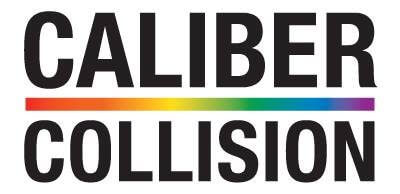Realtor Marketing
Digital Marketing Services for Real Estate Agents
Most realtors struggle to generate consistent leads and sales. We fix that! We develop custom digital marketing services proven to get more leads. Request a free custom strategy from our experts!




Real Results for Real Estate Agents
Compete and win. We keep you ahead of a changing real estate industry so you don’t even have to think about it. We want you to be our next client success story!




The HV team is the smartest, most creative SEO people in the business. Overall, they have been a pleasure to work with, and I would recommend them without reservation.
What To Expect With Your Realtor Marketing Campaign
Every person on your campaign is regularly re-certified at the highest level; so you can keep growing while the competition fumbles.
































-
01.Data GatheringAn initial kick-off meeting will be held with your Brand Success Manager (BSM) and any key personnel who will be working with you. During this call, we will ask questions to gain a deep understanding of your business, identify your main goals & important KPIs, and establish a communication cadence with primary stakeholders.
-
02.Internal StrategiesAfter completing your kick-off meeting, an internal strategy session will occur with all key personnel on the campaign to develop our proposed plan & ongoing strategy customized to achieve your goals.
-
03.Insite DashboardOnce set up, your BSM will schedule a walkthrough of the InSite Dashboard. This is a vital tool for the success of your campaign. A few of its benefits: performance tracking, campaign task tracking, strategy insights, and downloadable reports.
-
04.Scheduled MeetingsWe’ll set regularly scheduled meetings with your BSM to discuss objectives, campaign performance, upcoming deliverables, strategy review & approval, and general feedback.
-
05.Quarterly ReviewsQuarterly campaign review meetings with your BSM to discuss long-term objectives, campaign performance, ongoing strategy, tactical adjustments, etc.
-
06.Strategy AdjustmentsThroughout the campaign, your BSM and all key personnel will be analyzing data to make strategic adjustments catered towards achieving your goals.
Dealing With Real Estate Marketing Challenges?
If any of these challenges sound familiar, meet HigherVisibility. We’ve worked with numerous real estate industry clients to solve these same challenges. Our team is ready to help you!

HigherVisibility has been a huge help from the moment we hired them. The impact they have had on our lead flow can’t be understated. Highly recommend!
Learn how to leverage real estate internet marketing to turn your leads into clients and get bookings with ease.
The rapidly advancing rate of technological innovation is just as quickly rendering most in-person tasks unnecessary. Business transactions, family visits, classes, and entertainment are taking place virtually.
Many industries have digitized their marketing strategy, and the real estate industry is no exception. Realtors and brokerage companies use real estate digital marketing strategies to attract potential clients and network with fellow real estate agents.
According to the National Association of Realtors (NAR), millennials make up 37% of homebuyers on the market, and 98% of millennials rely on the internet to look for and purchase their homes. Overall, 93% of home buyers visit realty websites to look for new homes. Even older generations that prefer in-person business interactions still use the internet for preliminary searches. Here we offer seven useful tips for building a successful real estate internet marketing strategy.
7 Tips for Real Estate Digital Marketing
The internet is a limitless bounty of information, resources, and opportunities. Nevertheless, navigating and deciding which data to use may feel overwhelming. Therefore, we recommend these seven marketing ideas and tools to start you on your real estate marketing journey.
1. Design a User-Friendly Website
The first step to marketing yourself as a real estate agent is to create a website that is easy to navigate and aesthetically pleasing. Furthermore, your website must adopt a responsive web design (RWD), that is, it must be compatible with multiple devices.
Most people have computers, smartphones, and tablets that they use interchangeably or simultaneously throughout the day, so you want your website to visually adapt to screens of all sizes.
Real estate websites should contain:
A well-constructed realtor bio and professional headshot
- An index of real estate listings
- Nicely edited, high-quality pictures of the homes’ interior and exterior, including 360-degree photographs, so visitors get a thorough visual perspective of dimension
- Relevant links to virtual tours and pertinent information on different aspects of home buying, including moving, legal services, and neighborhood descriptions
- Client success stories and testimonies
To monitor your website’s success, Google provides a helpful and free tool known as Google Analytics, which tracks traffic on your site. You can see where leads come from and what part of your page visitors spend the most time looking at, allowing you to modify your page to contain more of the desired characteristics that increase visitor curiosity.
2. Email Blasts and Scheduled Newsletters
Email blasts and scheduled newsletters are two crucial elements that comprise the concept of email drip campaigns. Email drip campaigns send automated marketing emails in masse at strategically planned time intervals. Scheduled emails consist of newsletters, reminders, or updates sent out on a specified schedule to maintain a lead’s interest in a property or service.
You can use email marketing services to maintain your client base and expand your audiences with software that provides business management tools, customizable email templates, and email blasts. When a prospective home buyer opens an email blast to see your newsletter, many of these programs ping the realtor to alert them to which potential buyers are interested so that they can quickly follow up with them.
Popular email marketing services include ConstantContact, SendinBlue, and Benchmark, but there are many different platforms to choose from. We recommend you shop around to see which one works best for your marketing efforts.
3. Use Online Industry-Specific Resources
Like most businesses, the real estate industry is highly competitive. Still, realtors have developed a system of reciprocity known as Internet Data Exchange (IDX) whereby brokers can share information with each other to broaden their client base.
By engaging in IDX, brokers grant permission for other brokers to share their listings on competing sites and are likewise granted permission to share their fellow brokers’ listings on their own sites.
Another crucial resource is Multiple Listing Service (MLS), a database that displays all current listings for homes on the market in a specified area. MLS lets real estate agents and brokers spread and share information on properties amongst themselves to negotiate potential collaborations between sellers and buyers.
By having a list of all properties on the market, it is easier to appraise property value and to draw up collaborative contracts that benefit competing realty agencies. Full access to these services is limited to licensed realtors and members of the NAR.
4. Create Profiles on Professional Networking Sites and Realtor Specific Search Sites
It is essential to have a pervasive online presence. Not only should you have an established website for internet marketing, but you should also create profiles on well-known real estate search engine sites. Popular real estate sites such as Zillow, Trulia, Movoto, and Homes.com have city-specific listings of properties as well as real estate agent contacts. Potential buyers often arrive at your website from viewing your profile on one of these massive real estate databases.
The professional networking site, Linkedin, is another vital platform that has a twofold benefit of catering to prospective clients and establishing crucial relationships with other realtors.
Another easy way to get noticed by home buyers is to ask past and current clients to write good reviews on sites like Zillow. Don’t be intimidated; satisfied customers will surely agree to help you grow your business with a quick, complimentary review of your services.
5. SEO
Search Engine Optimization is the method by which your website improves the amount and value of visitors through free internet searches. This method involves analyzing the way standard search engines work by understanding their specific and ever-changing algorithms. SEO draws from data analysis on what target populations search for on the internet, and more specifically, the keywords or phrases they type into search engines for specific topics.
High ranking keywords for real estate marketing sites include the specific location of your real estate business as well as industry-specific terms. Blog posts on your website should therefore have keywords like “real estate agent”, “realtor”, “real estate agents near me” along with the name of a specific city or neighborhood to increase their SEO optimization.
Just as technology continually updates, expands, and acquires new forms so do SEO algorithms. Therefore, it is your responsibility to monitor changes in digital marketing trends, updating blog posts with new keywords and phrases that boost your site’s visibility to search engines.
6. Social Media Presence
Over the past decade, social media has taken over the internet and continues to grow in usage and membership. Current statistics show that Americans spend more time using social media than they do on dining, socializing, and shopping combined.
According to Pew Research, the three most popular social media platforms are Facebook, Youtube, and Instagram. Americans rely more on social media than any other website for news and information. Therefore, you must capitalize on social media marketing as a large part of your real estate internet marketing.
Just as you have created a real estate website, you will need to create a business page on Facebook, a video account on Youtube, and a business account on Instagram. Twitter is another increasingly popular platform with which to market yourself. Each platform requires unique and varied content. For example, you can post longer informative videos on your Youtube channel, like neighborhood tours and scripted virtual tours.
Facebook and Instagram offer a much wider variety of multimedia expression. Facebook pages have formats like standard business web pages that are easy to fill in and even easier to update and make daily posts. Facebook Live is an excellent feature for showing a home in real-time to many potential buyers from the comfort of their homes or workplaces. You can walk through the house, filming every room, explaining characteristics and pricing while clients comment, or ask questions in the underlying comments section.
Instagram has seen exponential growth in popularity in the states and continues its upward trajectory. With Instagram, feeds, and personal pages take on a simpler, cleaner appearance that is more visually appealing and enticing.
Here you have a lot more creative freedom to reel in audiences with beautifully edited photographs of properties and their surrounding neighborhoods. Below each picture, you can write a brief yet captivating caption with industry-appropriate hashtags.
The hashtag feature on Instagram is particularly useful as hashtags act as veritable SEO keywords that instantly display your photographs when users search topics. You can even create your personal hashtag to use repeatedly on all the pictures in your profile which will likewise begin to get more hits as you acquire more and more followers.
The Instagram Story feature allows you to create 30-second burst videos that disappear after 24 hours. You can also post longer videos to your profile page, but the viewer must opt to watch videos longer than 30 seconds on IG TV. Stories are excellent ways to get potential clients’ attention with short, expressive videos that leave them wanting more.
Lastly, every social media platform provides spaces to link your website or any other website that provides your clients with more thorough information on listings.
7. Provide Location-Specific Information
According to NAR, 58% of home buyers prioritize neighborhood quality as critical criteria for buying a new home. For many homebuyers with young families, buying a house is about domestic accommodation as much as it is about location and community resources. As a realtor, you should get to know the neighborhoods in which your houses are located by talking to local restaurant owners, schools, and neighborhood associations.
You can compile and display neighborhood statistics as well as links to contact information for the neighborhood and school associations, group emails, and city parks and recreation websites for your clients to explore to make a thoroughly informed decision on the home they want to buy.
Summary
The internet is a huge source of information and connection that industries rely on to communicate and market their services. While real estate is about the tangible experience of showing, touring, buying, and moving into new homes, real estate internet marketing provides real estate agents and brokers with a new set of tools.
Realtors can disseminate information to clients, network with colleagues, and rapidly expand their client base all from a portable device. We have given you seven real estate digital marketing strategies to help successfully market yourself online. It is up to you to do the research and choose the tools you need to display and publicize your services creatively.
HigherVisibility University
Check out our collection of free digital marketing guides, research reports, and best practices aimed at helping you build a better real estate brand.

A company that delivers results from the moment you start. I’m happy our company found them and I plan on working together for a long time to come. Thanks HV!